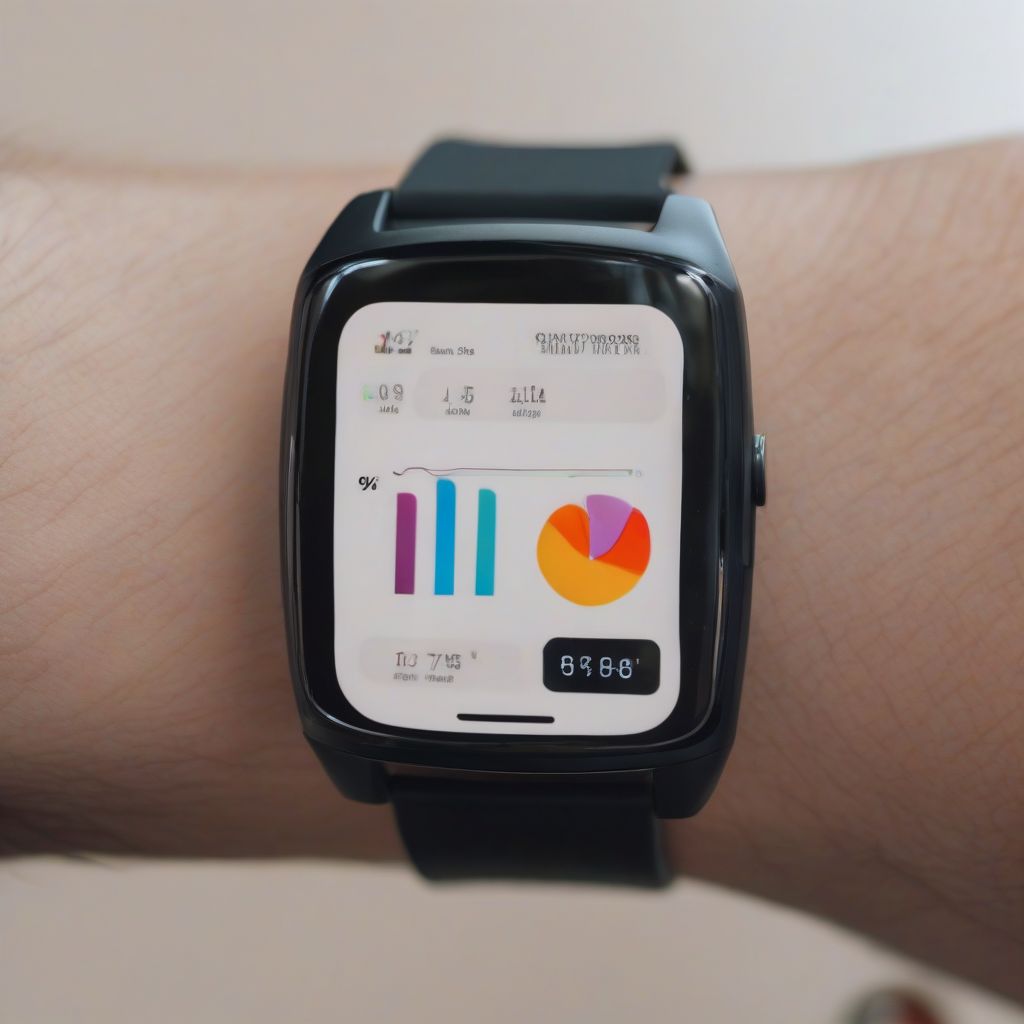Have you ever dreamt of having a personal health coach available 24/7? That dream is becoming a reality thanks to the rapid advancements in wearable technology. From smartwatches to fitness trackers, these devices are revolutionizing how we monitor and manage our health. But what exactly is the impact of wearable tech on personal health monitoring? Let’s dive in and explore this fascinating topic.
Understanding the Power of Wearable Tech
Wearable tech, in its simplest form, refers to electronic devices worn on the body, collecting and analyzing personal health data. This data can range from heart rate and sleep patterns to steps taken and calories burned. The power of these devices lies in their ability to provide real-time feedback, empowering users to make informed decisions about their health. Think of it as having a personalized health dashboard right on your wrist.
How Wearable Tech is Changing the Game
The impact of wearable tech on personal health monitoring is multifaceted. It’s not just about counting steps anymore. These devices are now sophisticated enough to detect irregularities in heart rhythms, monitor blood oxygen levels, and even track stress levels. This continuous monitoring allows for early detection of potential health issues and encourages proactive health management. “Imagine a world where a smartwatch could alert you to a potential heart problem before you even experience symptoms,” says Dr. Jane Doe, a leading cardiologist. “That’s the potential of wearable tech.”
 Wearable Tech for Health Monitoring
Wearable Tech for Health Monitoring
Empowering Individuals to Take Control of Their Health
One of the most significant impacts of wearable tech is its ability to empower individuals to take control of their health. By providing readily accessible data, these devices foster a sense of ownership and responsibility. Users can see the direct impact of their lifestyle choices on their health metrics, motivating them to make positive changes. Whether it’s increasing daily activity, improving sleep hygiene, or managing stress levels, wearable tech provides the tools and insights needed to achieve personal health goals.
The Benefits of Wearable Tech for Health Monitoring
The benefits of wearable tech extend beyond simply tracking fitness metrics. These devices offer a range of advantages for individuals seeking to improve their overall well-being.
Enhanced Fitness Tracking and Motivation
Wearable tech provides detailed insights into fitness levels, allowing users to track progress and stay motivated. From setting step goals to monitoring workout intensity, these devices offer a comprehensive overview of physical activity. This data-driven approach helps individuals set realistic goals and celebrate achievements, fostering a sense of accomplishment and encouraging long-term adherence to fitness routines.
Early Detection of Potential Health Issues
As mentioned earlier, wearable tech can play a crucial role in early detection of potential health problems. By continuously monitoring vital signs, these devices can alert users to irregularities that might otherwise go unnoticed. This early detection can be life-saving, especially in cases of heart conditions or sleep disorders.
Improved Sleep Quality and Management
Many wearable devices now offer advanced sleep tracking capabilities, providing detailed insights into sleep patterns and quality. By analyzing sleep stages and identifying potential disruptions, these devices help users understand their sleep habits and make necessary adjustments to improve sleep hygiene. Better sleep translates to improved overall health and well-being.
Personalized Health Insights and Recommendations
Wearable tech goes beyond simply collecting data. Many devices now offer personalized insights and recommendations based on individual health metrics. This personalized approach allows users to tailor their health journey to their specific needs and goals.
Addressing Concerns and Challenges
While the benefits of wearable tech are undeniable, it’s important to acknowledge potential concerns and challenges.
Data Privacy and Security
With the increasing amount of personal health data being collected, data privacy and security are paramount concerns. Users should be aware of how their data is being used and stored and choose devices from reputable companies with strong privacy policies.
Accuracy and Reliability of Data
While wearable tech has come a long way, the accuracy and reliability of data can still be a concern. It’s essential to choose devices that have been validated for accuracy and to understand the limitations of the technology.
Over-Reliance on Technology
Another potential challenge is over-reliance on technology. While wearable tech can be a valuable tool, it’s important to remember that it’s not a substitute for professional medical advice. Users should always consult with their healthcare providers for any health concerns.
Conclusion
The impact of wearable tech on personal health monitoring is profound and far-reaching. These devices are empowering individuals to take control of their health, providing valuable insights and motivation to make positive lifestyle changes. While there are challenges to address, the potential of wearable tech to revolutionize healthcare is undeniable. From early detection of health issues to personalized health recommendations, these devices are transforming how we monitor and manage our well-being. What are your thoughts on the future of wearable tech in healthcare? Share your comments below and let’s continue the conversation.



